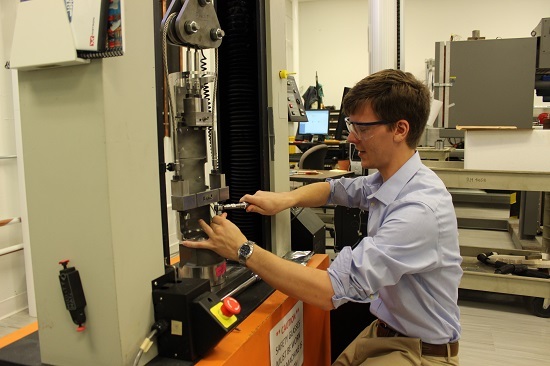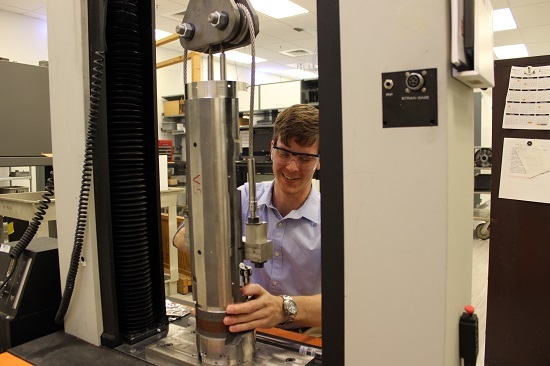How Mentorship Leads You on a Path to Success

André Joubert, an Applied Technologies & Advanced Programs (ATAP) Systems Engineer in Wilmington, MA, has grown in his career while working on several weapons and munitions programs. Through these skill-building projects and the guidance he’s received from mentors, Joubert has become an experienced member of the ATAP team. Collaboration across the business has allowed him to make diverse professional contacts and further widen his skill set.
At the beginning of his career, Joubert remembers one project that pushed him professionally and allowed him to grow his skill set. Confident he could handle the challenge, Joubert’s manager allowed him to take the lead on the expansive project. “It was a lot to be thrown into so early in my career, but I think it was an incredibly beneficial experience because it gave me a lot of different contacts, and it gave me a flavor of more extensive tasks that I could be involved in later on,” Joubert said. Throughout the project, Joubert acquired new contacts and resources, giving him the tools to design test fixtures, submit drawings to the machine shop, procure support equipment and define the entire project timeline. By saying yes to these skill-building opportunities and challenging projects, Joubert was able to explore what career path he most enjoyed and what fit him best.

To Joubert, “mentorship is when you can provide guidance and support in a way that still lets mentees challenge themselves and grow professionally without you forcing any of their actions or decisions.” While it’s important for mentees to be in control of their own careers, it is integral to have mentors that are able to provide direction and help foster professional growth. Joubert has received advice from leaders and peers alike, providing different perspectives based on their personal experiences.
Joubert’s top three qualities for a mentor are approachability, communication and humility. He feels that approachability is important because “making yourself available to not just mentees, but colleagues in general, allows people to be more comfortable coming to you for guidance.” Communication is important because “you can give the best advice in the world, but if your message doesn’t come across clearly, then your strength as a mentor is diminished.” Finally, Joubert considers humility to be the most valued quality because “it’s important to admit your mistakes because it shows that you’re human.” Joubert hopes to be as great a mentor to others as his leaders and peers have been to him. By continuing to build on the foundation of his professional growth and being willing to invest in those around him, Joubert will succeed.